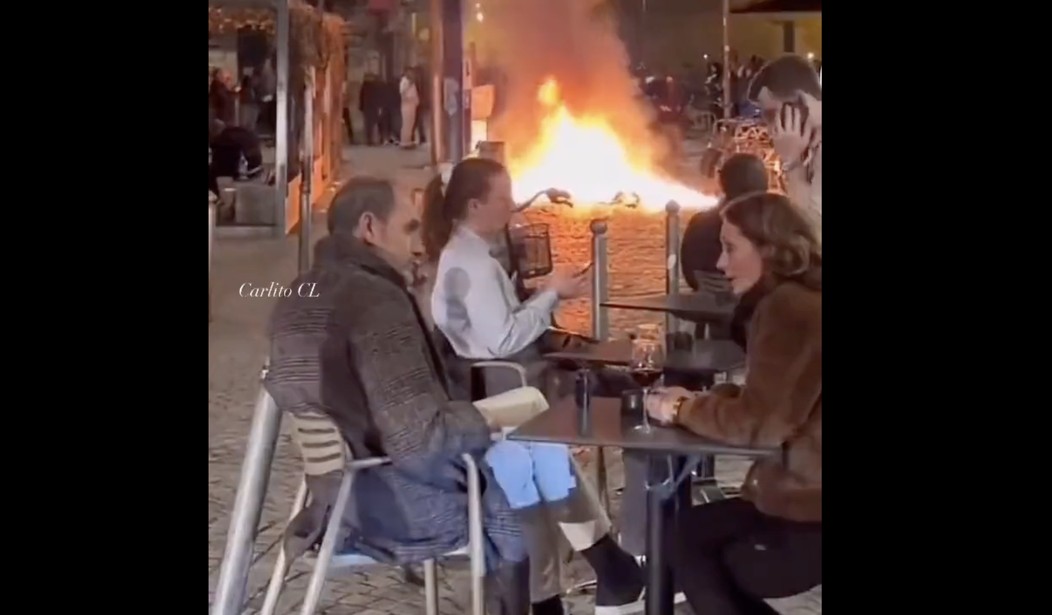We in the West are constantly treated to the deceitful refrain by the governing authorities that “diversity is our greatest strength.” It’s basically a religious tenet at this point.
This axiom is taken for granted by and large, reflexively and synchronically parroted by every major governmental figure on the left side of the ledger, up to and including the Brandon entity. No one ever bothers to explain the specific mechanics of how ill-defined diversity (diversity of what?) benefits society.
Generations of Korean Americans have enriched our culture and proven that diversity is our greatest strength. On Korean American Day, the Biden-Harris Administration celebrates the storied history and accomplishments of Korean Americans. 같이 갑시다! pic.twitter.com/XUnQvqwlIa
— The White House (@WhiteHouse) January 13, 2023
But, in fact, is “diversity our greatest strength”?
The race war playing out on the streets of Paris — kicked off by a George Floyd-esque police incident — says otherwise.
Via Hindustan Times:
French prime minister Elisabeth Borne said that the emergency cabinet meeting called by the country’s president Emmanuel Macron aims to review “all options” to restore order. “The priority is to ensure national unity and the way to do it is to restore order,” Borne said following the fatal shooting of a teenager which has sparked three nights of unrest in France.
France must address deep issues of racist discrimination in its police, the United Nations said, saying, “We are concerned by the killing of a 17-year-old of North African descent by police in France… this is a moment for the country to seriously address the deep issues of racism and racial discrimination in law enforcement.”
France is a failed experiment. pic.twitter.com/h4L7rU7WVM
— Jackson Hinkle 🇺🇸 (@jacksonhinklle) June 30, 2023
A glass of wine at a nice café while watching Paris burning 🤣
French joie de vivre at its best 🍷 pic.twitter.com/AbwElnrYwj— Dr. Eli David (@DrEliDavid) July 2, 2023
The second largest shopping mall in Paris is now under the control of the new French African Islamic caliphate. pic.twitter.com/MdhgO13qnm
— Stew Peters (@realstewpeters) June 30, 2023
A wealth of sociological/political work — not to mention common sense — indicates that, in fact, without very specific accommodations, diversity of the cultural variety within a single polity is a liability, not a strength.
In the best-case scenario, under the “melting pot” theory of immigration once commonly accepted in the United States, diversity works — or at least doesn’t ostensibly harm social cohesion — because of a strong societal commitment to pluralistic tolerance and extensive assimilation efforts, enforced both through official policy and the assimilating culture.
In the worst-case, more common scenario, cultural diversity leads to civil strife, as we can see playing out currently on the streets of Paris.
At the level of international relations, the phenomenon of incompatible groups duking it out either across or within national borders (as in the case of the mass migration seen in Europe) is called a “clash of civilizations,” a concept pioneered by Samuel Huntington:
The interactions among peoples of different civilizations enhance the civilization-consciousness of people that, in turn, invigorates differences and animosities stretching or thought to stretch back deep into history.
I know personally a handful of French ex-pats, scattered here and there, who vow never to return to their homeland because, in their characterization, it’s now unrecognizable. Such is the gift of neoliberalism.
Related: Western Decline: ‘Am I Gay’ Web Searches up 1300% in U.S.
Douglas Murray, a British national and an early defender of Western civilization, in his seminal 2017 treatise on this subject, The Strange Death of Europe, examines the perplexing cultural suicide currently underway in Europe. The continent — under the direction of EU headquarters in Brussels — continues to import unmanageable hordes of Third World migrants with no real governmental effort to integrate them:
However greatly you might wish to benefit from an endless supply of cheap labour, a wider range of cuisine or the salving of a generation’s conscience, you still would not have a right to wholly transform your society. Because that which you inherited that is good should also be passed on. Even were you to decide that some of the views or lifestyles of your ancestors could be improved upon, it does not follow that you should hand over to the next generation a society that is chaotic, fractured and unrecognizable.










